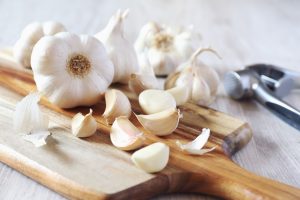
Most antioxidants come from the food you eat. Some powerful ones, however, are made naturally in the body. But with age, like many other functions, this antioxidant production can slow down and leave cells more susceptible to harmful free radicals.
Glutathione is a natural antioxidant that decreases with age. It is made up of three amino acids: glutamine, glycine, and cysteine, and finding ways to get more as you age naturally may help combat the effects of diminishing levels.
Ways to boost levels of the age-fighting antioxidants include:
- Eating sulfur-rich foods like beef, poultry, fish, broccoli, Brussels sprouts, and kale, garlic, shallots, and onion.
- Getting more vitamin C. Some research has shown supplemental doses of 500 to 1,000 mg per day may boost glutathione levels.
- Eating glutathione-rich foods like avocado, spinach, and asparagus
- Supplementing with whey protein
It’s important to remember that glutathione is constructed from three amino acids. Therefore, eating amino-acid rich foods, like “complete” proteins, could be the best strategy.
“Complete” proteins feature all essential amino acids and are generally found in animal-based foods like meat and dairy. Some plant-based foods like quinoa offer complete proteins, but it is uncommon.
Eating certain meat products, however, can boost inflammation and lead to increased free radical production. It’s advised to limit intake of fried and fatty processed meats like deli meat, bacon, cold cuts, hot dogs, and other processed varieties to strike the right balance.
Sticking to leaner, unprocessed cuts is a healthier approach to help limit inflammation. Have servings similar to your palm size while opting for fatty fish like salmon twice per week.
Antioxidants can help keep your cells young to slow aging and promote better health.